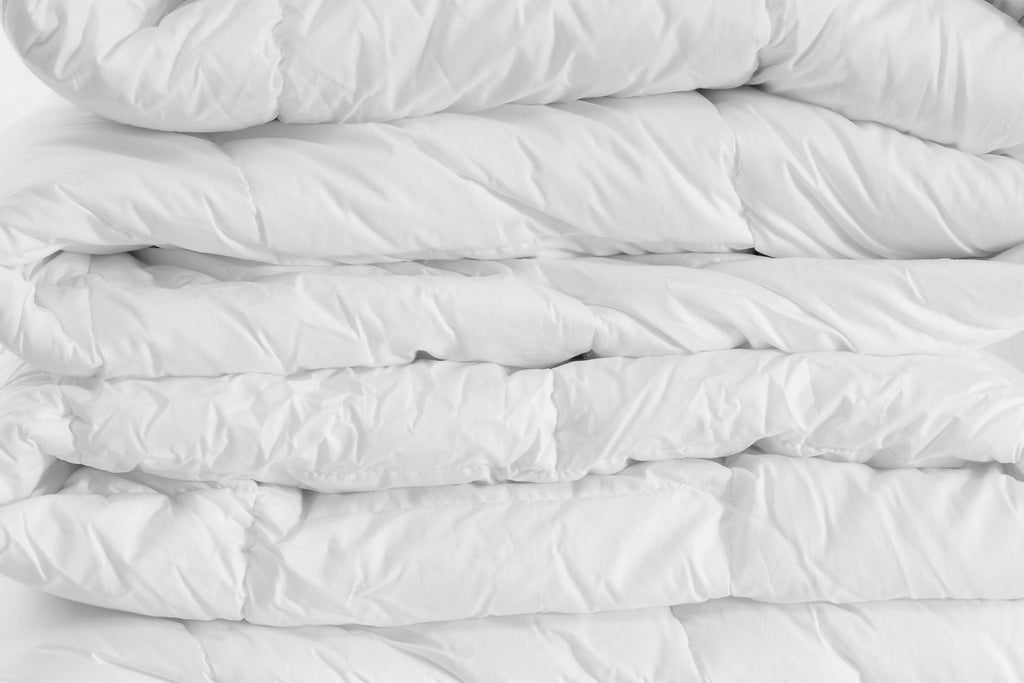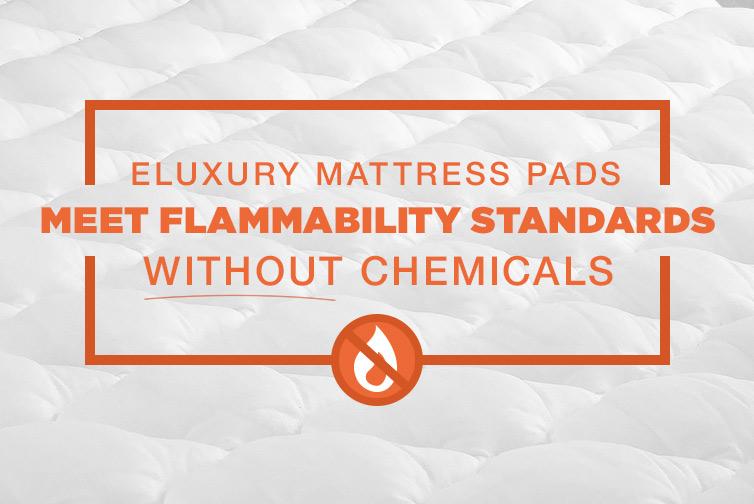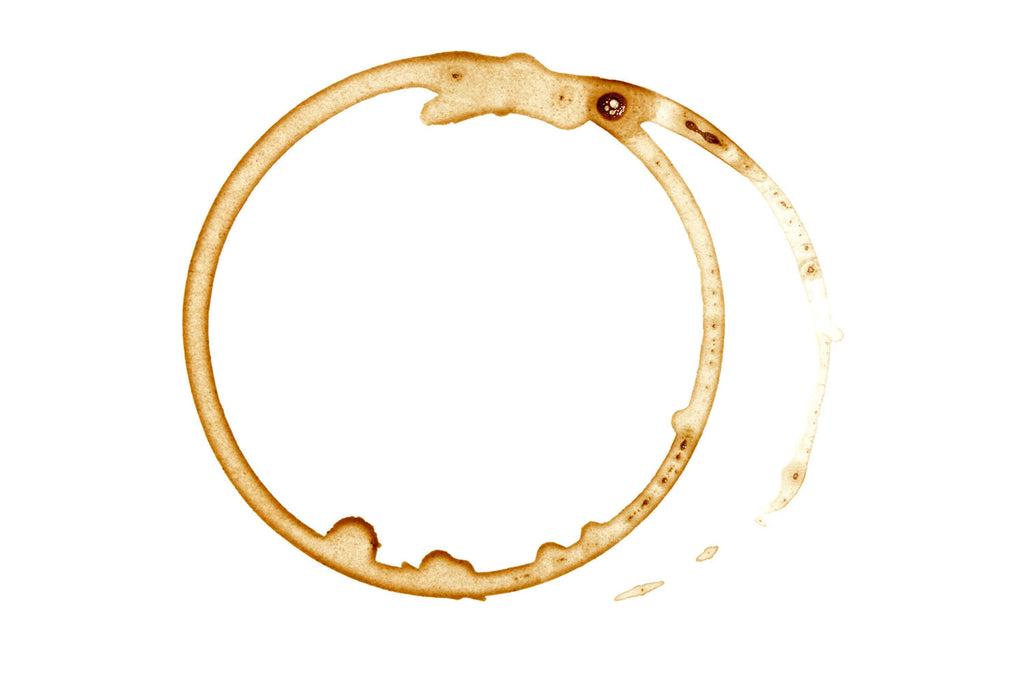
Comforter vs. Quilt - Our Guide To Making the Coziest Choice

Have you been upgrading your bedding lately but aren’t sure where to turn for the most comfortable and cozy options? We’ve all been there, especially when replacing bedding, because it is not as satisfying as it once was. A high-quality comforter or quilt can greatly improve the comfort levels your bedding offers.
Since the two have different aims and are better for two different kinds of sleepers, we’re going to highlight those differences for you. Read on to learn more about how you can stay as comfortable as possible with these bedding choices.
What Is the Difference Between a Comforter and Quilt?
People sometimes use the terms quilt and comforter interchangeably when they actually are two very different forms of bedding. While they both serve the same purpose, let’s get into their differences before we break down their pros and cons.
What Is a Comforter?
A comforter is a bed topper that is generally made of a thick inner layer that has material that insulates warmth and works to keep you nice and cozy all night long. An upper fabric goes over the inner layer and fabric below the inner layer, keeping the filling securely encased.
The main difference between a comforter and a quilt is that a quilt lacks the inner layer that the comforter has. What is inside the comforter, you might ask? It could be a wide variety of materials, such as down or cotton. They could even have other materials inside them for those who are looking for something that is hypoallergenic.
To easily recall the difference between a comforter and a quilt, remember that a comforter has an inner filling while a quilt lacks this feature.
The Quilt
A quilt has three layers, much like a comforter, but the middle layer lacks any sort of filling that the comforter does. The top layer consists of a woven fabric. The middle layer can be made from a number of materials, ranging from wool to polyester (and the bottom layer is also another woven fabric).
Compared to comforters, quilts are much less fluffy and voluminous since the inner layer of a quilt actually tends to be on the thinner side. A quilt's distinct features come from the stitching on the upper layer; they give off a homemade look. Quilts often look like something that a close friend or family member had sewn for you.
The upper layer is usually made up of various pieces of fabric stitched together, similar to any sort of patchwork that you have seen in the past. Quilting dates back hundreds of years, and each pattern has a specific meaning.
The Pros & Cons of Each
Now that we’ve reviewed the difference between the two forms of bedding, we can break down the benefits and downsides of each so you can decide which one you will feel the most comfortable in.
The Pros of a Comforter
- Thick: if you struggle to stay warm at night, these options are best for you. A comforter will provide you with the insulation you need for a comfortable sleep, and if you live in a location where winters can be particularly harsh, a microfiber comforter is a must.
- Cloud-Like: Since their inner layer is very puffy, comforters tend to be plush and voluminous. Even if you aren’t beneath the comforter and are relaxing on top of your bed, it can provide extra comfort when it comes to everyday relaxation.
- Attractive: comforters make a bed look even more comfortable than it already is with its plush look. Additionally, you may have more options for comforters as opposed to quilts when it comes to solid colors. Quilts are often made with patchwork, so matching them to your existing decor can prove tricky at times.
Cons of a Comforter
- Can Be Too Bulky: If you live in an area where the climate is much warmer than average, a comforter may not be best for you. Additionally, if you are a warmer sleeper in general, the thickness and sheer weight of the comforter could feel like too much.
- Harder to wash: Comforters are notoriously a pain to wash properly, especially if you are trying to keep the inner packings of the comforter evenly dispersed. Since they are so thick and bulky, it can be difficult packing them all into the washing machine without sacrificing some of the integrity of the product. While there are definitely ways to make washing bedding easier, washing a comforter could become a bother if done improperly.
Pros of a Quilt
- Great for cooler sleepers: quilts, on average, are much thinner compared to the thickness of a comforter. If you live in a hotter climate or are a hot sleeper, quilts could be the way to go here. They will keep you cool throughout the night, making sure no unnecessary weight is bogging you down in your sleep.
- Clean and Sleek: some people do not like that bulky look that a comforter gives, and if you want something that is not as puffy looking, then a quilt is the perfect choice of bedding. Quilts can easily have sharper and more clean edges compared to the rounded nature of a comforter due to its inner packing.
Cons of a Quilt
- Less versatility: Comforters come in all different kinds of colors and materials, and while the same can be said for quilts, it can be a bit more challenging for you to find a quilt that is free of patchwork. This can look great in specific environments, but it’s just not some people’s desired look, and if it’s not yours, that’s totally okay. Go for the comforter, then!
- May be too thin: If you live in a colder area or just want to be as warm as you possibly can at night, then quilts may not be the best choice for you. They are known for how thin they can be, whereas a comforter is known for its thickness. If the thickness sounds more appealing to you, select a comforter instead.
- Difficult to Care For: if your quilt is handmade, this can be particularly difficult to wash and take care of without compromising any of the stitching and patchwork. You would have to handwash certain quilts, while others will come with specific instructions for care.
Which One Should I Use?
You’ve heard all of the pros and cons of each; now comes the question, is one better than the other? This entirely depends upon the consumer at the end of the day and what you need. One is not objectively better than the other, but one choice is clearly better for one person’s needs compared to the others.
If you sound like someone who:
- Is a cold sleeper and struggles to stay warm at night
- Lives in a colder climate
- Likes plush and fluffy bedding
- Wants a solid color for your upper layer of bedding
- Doesn’t mind a specific washing process
- Wants heat to be insulated by the upper layer of their bedding
Then you should go with a comforter for your bedding. Comforters will guarantee that even the coldest of sleepers are kept as warm as possible for as long as possible during those hours when you are getting some much-needed shut-eye.
On the other hand, if these descriptions sound more like you:
- Someone who lives in a hotter climate
- You are a hot sleeper and sweat at night
- You like patchwork and lots of colors in your bedding
- You do not mind handwashing an item
- You like thinner, less thick bedding
Then a quilt should suit you and your needs more easily. Quilts are perfect for hot sleepers and will keep you cool and calm throughout the night. The last thing they’ll do is add any unnecessary heat to an already warm sleeper’s night.
Comforter vs. Quilt: What To Remember
Again, one of those options is not better than the other: Keep your needs in mind when picking between the two. They actually have some commonalities when you think about it; they’re both meant to be the top layer of bedding and are made with three distinct layers.
If you need some relief from hot and sleepless nights, a quilt will ensure nothing is adding to that excessive heat you experience at night. Too cold all night? A comforter's inner layer will trap any heat that your body produces, and you’ll forget that you were even a cold sleeper to begin with.
With this guide, we’re sure you’ll make the right choice for you!
Sources:
How to Wash a Handmade Quilt to Prevent Damage | The Spruce
How to Wash a Comforter, According to Cleaning Experts | Good Housekeeping
Quilt vs Comforter – Which Is Better? | Mattress Clarity
Quilt Discovery Experience - Homestead National Historical Park | U.S. National Park Service




